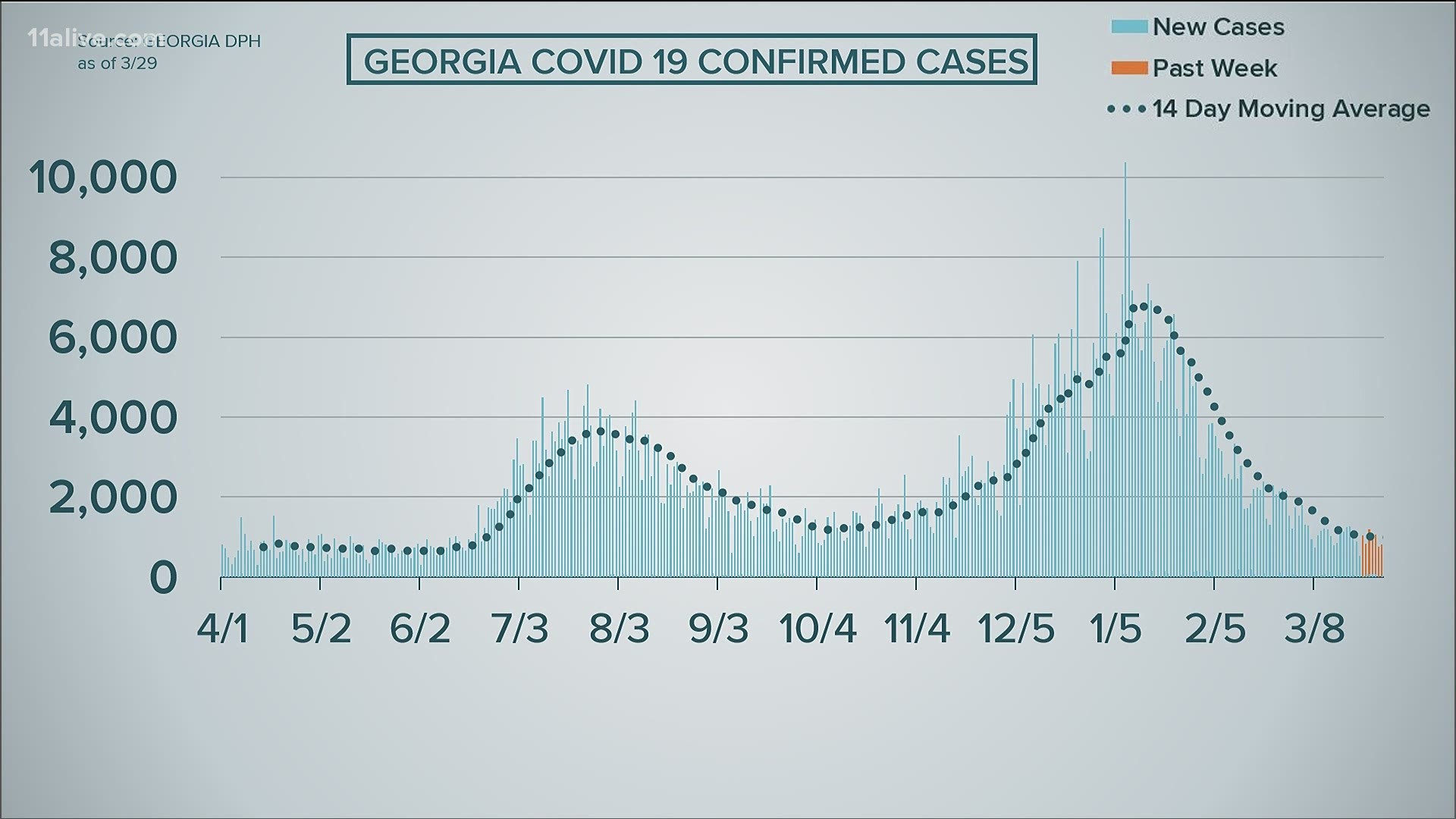ATLANTA — Ed. Note: Correction and Clarification--Georgia's Department of Public Health explained, Tuesday, the reason that Bacon County, in southeast Georgia, currently shows up as having the highest number of new COVID cases in the nation. The "new" cases are actually cases from May, 2020, when about 150 migrant workers employed by blueberry farms tested positive. The positive cases were included, at the time, in DPH's overall count of positive cases in Georgia, but, according to DPH on Tuesday, the cases then "were not assigned to a specific county. During normal data cleaning procedures and following updated CDC guidance on reporting COVID-19, these cases were recently assigned to Bacon County, artificially inflating the county’s current case-rate."
It is a warning for a pandemic-weary nation, a warning for people who are tuning out public health officials and their repeated advice for everyone just to be careful a little longer.
The warning is from the Centers for Disease Control and Prevention Director in Atlanta, Dr. Rochelle Walensky, who said on Monday: “I’m going to reflect on the recurring feeling I have of impending doom.”
Nationwide, there is a 10% increase in COVID cases.
“Right now, I’m scared,” she said.
Scared of possibly another deadly surge of COVID that may reach people before the vaccines do.
More people are travelling. More cities and states are abolishing pandemic restrictions on gatherings and businesses.
CDC data show the pandemic is erupting again, like a red algae bloom, including in the northeast U.S., and south along the Atlantic coast to Florida.
"What we've seen over the last week or so is a steady rise in cases,” Dr. Walensky said. “We're now in the 60- to 70,000 range (for new cases). And when we see that uptick in cases, what we have seen before is that things really have a tendency to surge and surge big.
"We know that cases sometimes can be a week or two behind the issues that lead to those cases," she added. "We know that travel is up, and I just worry that we will see the surges that we saw over the summer and winter again."
Walensky said the US has so much to look forward to, "so much promise and potential of where we are, and so much reason for hope," she said.
She added that she knows what it's like as a physician to stand in that patient room "gowned, gloved, masked, shielded and to be the last person to touch someone else's loved one because their loved one couldn't be there."
Walensky said the country has come such a long way thanks to three "historic, scientific, breakthrough vaccines," that are rolling out fast.
"So, I'm speaking today not necessarily as your CDC director, but as a wife, as a mother, as a daughter, to ask you to just hold on a little while longer," she pleaded. "I so badly want to be done, I know you all so badly want to be done. We are just almost there, but not quite, yet. And so I'm asking you to just hold on a little longer, to get vaccinated when you can so that all of those people that we all love will still be here when this pandemic ends.”
CDC data show that cases are up in some parts of Georgia, such as in metro Atlanta, and in one county, in particular, in southeast Georgia: Bacon County now has the highest new case rate in the country. (see Ed. Note at the top of this article).
“Disease is really just one airplane ride, or spring break traveler, away from us,” said Dr. Amber Schmidtke.
Schmidtke pointed out, Monday, in her Daily Digest online that, overall in Georgia, cases now are flat. They're not increasing, but they're not decreasing, either. And she said the test positivity rate is increasing among all age groups younger than 65.
“It’s especially true for children under that age of 18,” Schmidtke said. “It is concerning that we are seeing test positivity rise, because it means that we don’t have as good a handle on the disease transmission as we might want to have.”
Schmidtke, and Walensky—prophets, they might say, not of doom, but of that old, seemingly tired message to wear masks and to social distance, especially now.
“I hate to be this way, and nobody really wants to talk about these things, anymore,” Schmidtke said. “We’re all tired. But the reality is that we kind of have to stick with these things for at least the next month or more, to really give the state time to vaccinate as many people as they can.”

